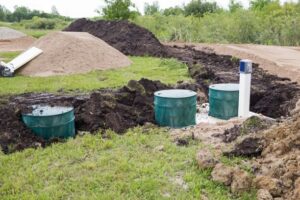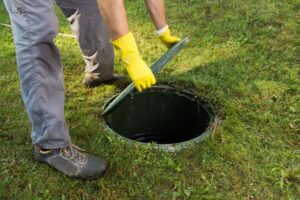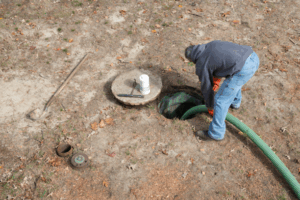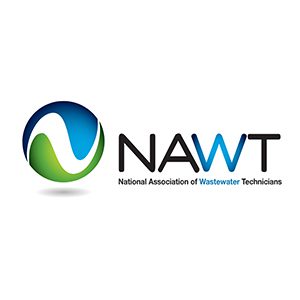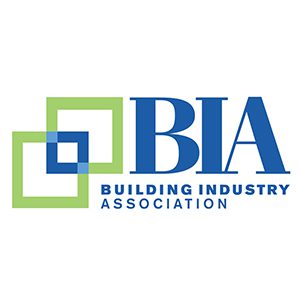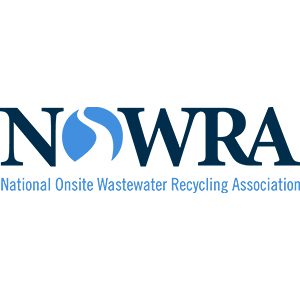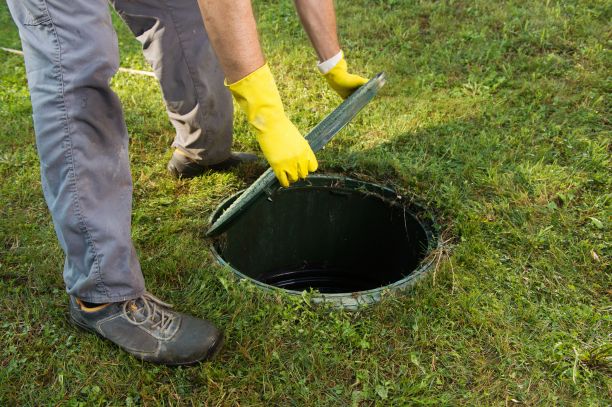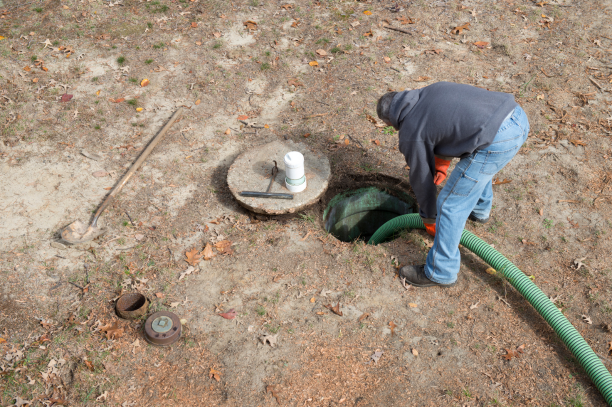Maintaining a clean grease trap is an essential part of a commercial kitchen. These devices keep fats, oils, and grease (FOG) from blocking sewer systems and protect your establishment and the environment. Failure to perform regular maintenance leads to costly repairs, health code violations, and operational disruptions.
For businesses in San Carlos Park, FL, Lehigh Acres, Bonita Springs, Fort Myers, North Cape Coral, and neighboring communities, professional services like grease trap cleaning and maintenance from Crews Environmental can help simplify grease trap management. In this blog, we will discuss how often you should clean a grease trap, what signs to look for, and the importance of staying compliant with local regulations.
Understanding the Role of a Grease Trap
A grease trap or interceptor is a plumbing apparatus planned to intercept FOG before wastewater enters municipal sewer lines. These substances solidify upon cooling and can block operations and damage infrastructure.
Leading grease trap cleaning and maintenance service experts in San Carlos Park, FL, reveal that these devices ensure smooth kitchen functionality, minimize plumbing issues, and protect the local environment by trapping grease and other food particles. In most jurisdictions, including Southwest Florida, proper maintenance of grease traps is not just a good practice but a legal requirement. Neglecting grease traps can lead to severe consequences such as:
- Clogged pipes and costly repairs.
- Health code violations that could result in fines.
- Negative environmental impact, including contamination of local water systems.
- Having a reliable grease trap maintenance schedule is essential to avoid these problems.
Recommended Cleaning Frequency
1. General Guidelines for Grease Trap Cleaning
According to the leading grease trap cleaning and maintenance service experts in Bonita Springs, the cleaning frequency of a grease trap depends on its size, kitchen output, and local regulations. As a rule of thumb:
Small grease traps (under-sink units): These should be cleaned monthly to prevent grease accumulation from impairing functionality.
Larger grease interceptors: Typically, these must be serviced every three months. However, a high-volume business such as a busy restaurant or cafeteria requires more frequent service.
Most facilities follow the “25% rule,” which holds that cleaning is necessary when FOG and solids occupy 25% of the trap’s capacity.
2. Factors That Influence Cleaning Schedules
Leading grease trap cleaning and maintenance service experts in Bonita Springs who specialize in commercial kitchen grease trap cleaning reveal that several variables can affect how often your grease trap needs service:
- Volume of Food Production: Restaurants with high food output produce more grease, which requires frequent cleaning.
- Type of Menu: Kitchens preparing fried or fatty foods tend to accumulate FOG faster.
- Trap Size and Location: The larger the trap, the more waste it can handle, but this also calls for regular maintenance to prevent excessive buildup.
- Compliance Requirements: Local regulations often dictate cleaning intervals to ensure public health and safety.
You can determine the best maintenance schedule for your establishment by scheduling regular inspections. Moreover, maintaining a logbook of grease trap cleanings will be helpful in terms of compliance and operational efficiency.
Signs Your Grease Trap Needs Immediate Cleaning
According to the most credible grease trap cleaning experts in San Carlos Park, FL, who specialize in avoiding grease trap backups, ignoring the signs of a full or malfunctioning grease trap can lead to severe problems. Here are some key indicators that it’s time for immediate attention:
1. Unpleasant Odors in the Kitchen
Accumulated grease gives off an offensive smell that could permeate your kitchen and dining areas. This not only disrupts operations but can also tarnish your establishment’s reputation. Customers may associate the smell with poor hygiene, hurting repeat business.
2. Slow Drainage in Sinks
Fog buildup prevents water from flowing through, and sinks will drain slowly. Top grease trap cleaning and maintenance specialists in Fort Myers reveal that if not corrected properly and in time, this will cause backups and unsanitary conditions. Slow draining can also affect the workflow of your kitchen staff, slowing down food preparation and cleaning processes.
3. Overflowing or Backups in the Trap
When grease traps become full, they may overflow. According to the most reputed grease trap maintenance experts in Lehigh Acres, this can result in hazardous working conditions and expose health code violations. Overflowing water from these grease traps might contaminate the water source, affecting some local ecosystems and increasing cleanup expenses.
Monitoring all these warning signs can help you address problems promptly before it gets expensive to have a costly repair or downtime. Training your staff on these warning signs can even help improve your grease trap maintenance program.
Compliance and Avoiding Penalties
1. Local Regulations Regarding Grease Trap Cleaning
Florida state law mandates proper grease trap cleaning to be properly maintained and documented. Businesses must ensure:
- Regular cleaning and inspections.
- Proper disposal of grease waste by licensed haulers.
- Maintenance of service manifests as proof of compliance.
According to the leading grease trap cleaning and maintenance experts in Naples who mostly handle commercial kitchen grease trap cleaning, failure to comply can lead to fines and other penalties. For instance, failure to maintain could be considered a violation of the Florida Department of Environmental Protection’s guidelines, leading to administrative action.
Staying informed about local ordinances is crucial. Partnering with a professional service like Crews Environmental ensures that your grease trap maintenance meets all regulatory requirements, keeping your business compliant and avoiding legal troubles.
Fines and Operational Disruptions Caused by Neglect
According to the most credible grease trap cleaning contractors in North Cape Coral, failure to comply with grease trap regulations can result in the following:
- Fines: Businesses may face penalties per violation for neglecting grease trap maintenance.
- Operational Interruptions: Top grease trap maintenance contractors in Fort Myers who specialize in cleaning grease traps effectively reveal that severe clogs can force temporary shutdowns, which can definitely impact revenue and customer confidence.
- Reputation Damage: Persistent grease issues can damage your business’s reputation, causing customers to lose confidence in your organization.
With the help of experienced service providers like Crews Environmental, you can maintain compliance and avoid these costly consequences. Our team offers detailed documentation and effective cleaning services that are customized to your kitchen’s needs.
Additional Benefits of Professional Grease Trap Cleaning
Many advantages accrue when one partners with a professional grease trap cleaning company, such as Crews Environmental.
1. Expertise:
Professional grease trap cleaning experts in San Carlos Park, FL, Bonita Springs, and neighboring communities know the intricacies of grease trap maintenance and ensure they are cleaned and comply with regulations.
2. Cost-Effectiveness:
Regular maintenance prevents costly repairs and reduces downtime.
3. Sustainability:
According to the most credible grease trap cleaning and maintenance service experts in Lehigh Acres, who mostly deal with restaurant grease trap regulations, proper grease waste disposal minimizes environmental impact and aligns with green business practices.
4. Peace of Mind:
Knowing your grease trap is maintained by experts allows you to focus on running your business.
Final Takeaway
Regular grease trap cleaning maintenance is a cornerstone of effective commercial kitchen management. Following a recommended maintenance schedule for cleaning grease trap interceptors can help avoid operational downtime and ensure compliance with local regulations, protecting your business from fines and damaging your reputation.
Crews Environmental is the premier business in providing quality and reliable grease trap cleaning and maintenance services to commercial properties based in San Carlos Park, FL, Lehigh Acres, Bonita Springs, Fort Myers, North Cape Cora, Captiva, Naples, and nearby areas. With over 40 years of experience, we specialize in grease interceptor cleaning, ensuring your kitchen runs smoothly while meeting all regulatory requirements.
Crews Environmental is available 24/7 to address urgent needs and offers routine maintenance plans that keep your operations running smoothly. Contact us today at 239-299-8604 or visit our website to schedule a service. Don’t let grease trap problems disrupt your business—partner with the experts at Crews Environmental for peace of mind and uninterrupted operations.


